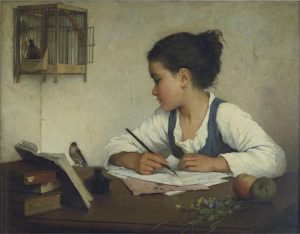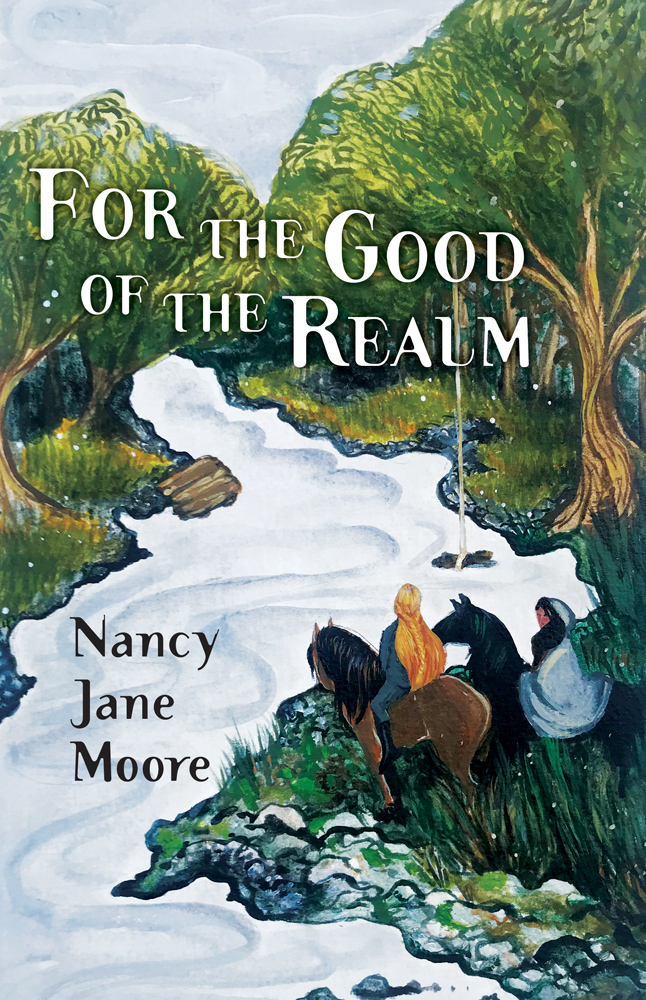I’m researching fairy tale retellings right now, so I want to start this post with Once Upon a Time. The story has a fairy tale element to it. It starts with a dream and ends with a happy surprise. It is, however, no fairy tale. Let me start it with the right words anyhow, because I can.
Once Upon a Time I had a dream. It was only a little dream. I woke up with an image from it so firmly imprinted into my vision memory, that, even before I had coffee, I went to my computer. I looked to see if I could find a picture of Io, because my dream was looking up at Io through an old telescope and seeing it as if it were our moon.
I found the picture almost immediately. Io looked the way my mind had dreamed it. I don’t remember if I took time for coffee, or if I wrote the story immediately, but by the end of the day I had a first draft of a story set in a far-distant planet, where a society re-enacted the eighteenth century.
I was chatting with a friend and told her about it. She read my draft. Then she told me her dream, which was to run a magazine. I let her have my story to use to build that magazine. She set up the organisation and edited everything and I and a couple of other friends built a world writers and artists could play in. That world was New Ceres. My story was its backbone and its heart, but it was never published. Life got in the way.
I took my version of New Ceres because I had new dreams about what could happen on that planet. Alisa took hers and she published a lovely anthology. She then started a publishing house and that publishing house has put out amazing book after amazing book. I watch to see where her dreams taker her next, because they’re always to fascinating places.
My dreams took a while to realise. First, I wrote them into a novel. An editor from a well-known science fiction press asked if I could send it to him. Whenever I asked about how he was going with it, I was told that it would be read the next week, that it was a priority, that I should not worry. Eight years later I took my manuscript back, and resolved to try elsewhere.
The novel was accepted somewhere else almost immediately, but that publisher imploded. Another publisher took it on. They asked one of my favourite artists to do the cover and he built (literally, built) a scene from the novel, and photographed it. A street from New Ceres lives in the Blue Mountains.
My novel was released straight into the first COVID inversion, where no-one looked for new novels by small press on the other side of the world. It was going to be celebrated at WorldCon in New Zealand. New Zealand is so close and so friendly and… the pandemic changed that, too. At least, I thought, it was finally published. I could close that chapter on those dreams and move on. Its final name was Poison and Light. Here, have a link to it. Admire the cover.
Tonight I had news about the novel I thought no-one could read because all the publicity and distribution were hit so hard by the pandemic that it simply wasn’t very visible. It’s been shortlisted for an award.
In that short-list are novels by wonderful writers whose work was issued by that first publisher. The editors won’t remember the eight years I had to wait, nor the emails that went unanswered in the last year, when I tried to find out what was happening. I remember. And now, finally, I know that the initial request to see the novel was serious. That it was an unlucky novel, but not one that was poorly written. And that readers are finding it, despite its travails.
I shall dream again tonight of that acned moon. And, finally, I will move on.

 It cannot be repeated often enough that there is no single right way to write a novel (or to compose a symphony or design a house). All these artistic endeavors require certain elements (plot, characters, tension rising to a climax, or motif and variations, harmony, contrast, or foundation, walls, plumbing, etc.) They vary in the point in the creative process at which those crucial elements must be in place, of course. Within those parameters, there’s a great deal of flexibility that allows for individual differences. What matters is not when a writer nails down the turning points, but that they are present and in balance with the rest of the book when it ends on the editor’s desk.
It cannot be repeated often enough that there is no single right way to write a novel (or to compose a symphony or design a house). All these artistic endeavors require certain elements (plot, characters, tension rising to a climax, or motif and variations, harmony, contrast, or foundation, walls, plumbing, etc.) They vary in the point in the creative process at which those crucial elements must be in place, of course. Within those parameters, there’s a great deal of flexibility that allows for individual differences. What matters is not when a writer nails down the turning points, but that they are present and in balance with the rest of the book when it ends on the editor’s desk.
 I just received editorial comments and a marked-up manuscript of the current novel from the editor. It’s such a joy to work with a professional who “gets it” and offers intelligent, insightful feedback. Editorial comments are quite different from critiques, by the way. At least, in my experience. While both can be valuable, the critiquer is essentially outside the story, jabbing at its shortcomings, whereas a good editor gets inside the story with the author, rolls up her sleeves, and says, “Let’s work together to make this book its best self.” And I have a great editor.
I just received editorial comments and a marked-up manuscript of the current novel from the editor. It’s such a joy to work with a professional who “gets it” and offers intelligent, insightful feedback. Editorial comments are quite different from critiques, by the way. At least, in my experience. While both can be valuable, the critiquer is essentially outside the story, jabbing at its shortcomings, whereas a good editor gets inside the story with the author, rolls up her sleeves, and says, “Let’s work together to make this book its best self.” And I have a great editor. It’s blackberry season, and as is my custom at this time, I went out this morning to pick from the brambles along our little country road. (We have our own patch, but the berries ripen later because it’s in a shadier place.) I try to do this early, when it’s cool and I’m not having to squint into the sun for the higher branches. As I picked, I thought about the story I’m working on (and currently stalled on 2 scenes-that-need-more), and also writing in general.
It’s blackberry season, and as is my custom at this time, I went out this morning to pick from the brambles along our little country road. (We have our own patch, but the berries ripen later because it’s in a shadier place.) I try to do this early, when it’s cool and I’m not having to squint into the sun for the higher branches. As I picked, I thought about the story I’m working on (and currently stalled on 2 scenes-that-need-more), and also writing in general.
 Crossing genres is hot business these days: science fiction mysteries, paranormal romance, romantic thrillers, Jane Austen with horror, steampunk love stories, you name it. A certain amount of this mixing-and-matching is marketing. Publishers are always looking for something that is both new and “just like the last bestseller.” An easy way to do this is to take standard elements from successful genres and combine them.
Crossing genres is hot business these days: science fiction mysteries, paranormal romance, romantic thrillers, Jane Austen with horror, steampunk love stories, you name it. A certain amount of this mixing-and-matching is marketing. Publishers are always looking for something that is both new and “just like the last bestseller.” An easy way to do this is to take standard elements from successful genres and combine them.